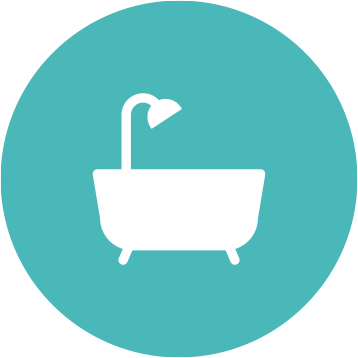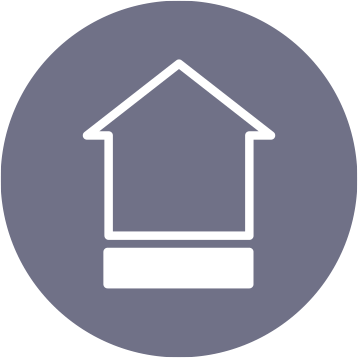36 Expert Tips for a Healthier Home
This report outlines 36 expert tips that can be implemented to make your home healthier. It follows two previous reports – “The 9 Foundations of a Healthy Building” and “Schools for Health: Foundations for Student Success” – that explain the science for how healthy buildings lead to improved work and more productive school environments. Now we turn our attention to the place we spend the most time – our homes.
Whole Home
Did you know the typical American spends 65% of our life inside our homes?
- Kick Your Shoes Off at the Door
- Bring in Fresh Air
- Install detectors for smoke and “the silent killer”
- (Re)connect with nature and natural light indoors
- Get the lead out (for homes built before 1980)
Bedrooms
A third of all the air you breathe in your life will be the air in one room…your bedroom.
- Train your brain and make this the sleeproom
- Black out the room (and “blue-out” your lights)
- Treat the air (and yourself)
- Keep your cool at night
- Block out the noise
Living Room
Dust is a reservoir for allergens from pests like dust mites, harmful chemicals and air pollution that settles out onto the floor.
- Vacuum. Regularly. With HEPA.
- Don’t smoke indoors (better yet, don’t smoke at all)
- Stamp out the candles and incense
- Choose furniture and carpets without harmful chemicals
- Properly vent fireplaces and wood stoves
Kitchen
Particle levels while cooking with an unvented stove can reach 10x higher than our health-based limits for outdoor air pollution.
- Cook with the exhaust hood on (and vented outdoors)
- Keep a fire extinguisher within easy reach
- Filter your drinking water where necessary
- Control pests using IPM, not more pesticides
- Choose glassware and cast iron or ceramic cookware
Bathrooms
Hand-washing is the cornerstone of public health. But don’t let that be the end of your efforts in making your bathroom healthier.
- Control moisture by exhausting air outdoors
- Limit the use of air fresheners
- Detoxify cleaners and personal care products
- Skip the antimicrobials
- Prevent slips, trips and falls with handrails and non-slip mats
Basement
Radon causes lung cancer and it can seep into your house through the basement.
- Measure and control radon
- Do not disturb signs of asbestos
- Dehumidify and inspect for signs of water issues
- Choose a hard floor
- Solve the solvent storage issue
Outside
We spend the majority of our time inside our homes, but the stuff immediately outside our homes is important, too.
- Ditch the pesticides and herbicides
- Beware of air from attached garages
- Secure the perimeter
- Tighten up your envelope
- Be resilient






